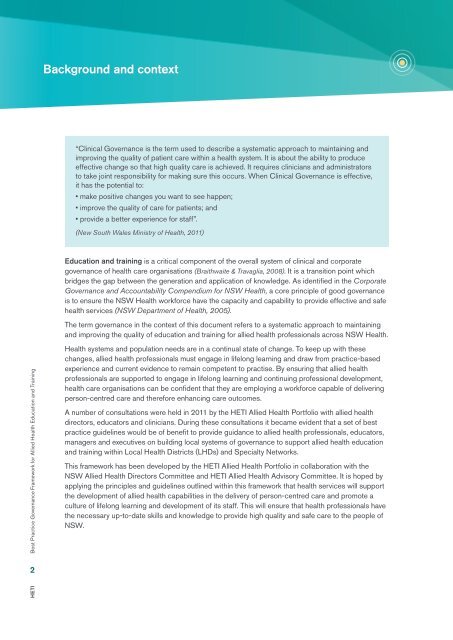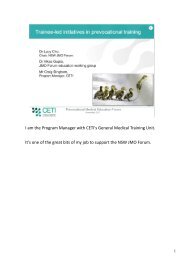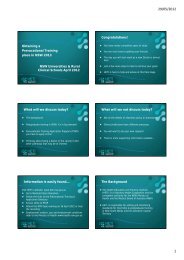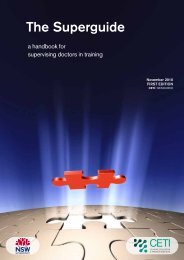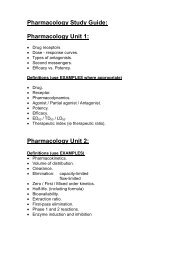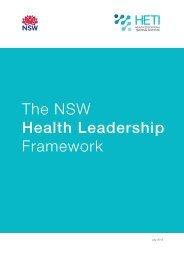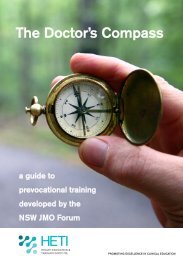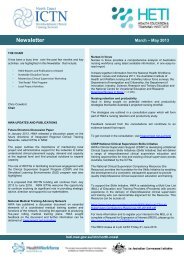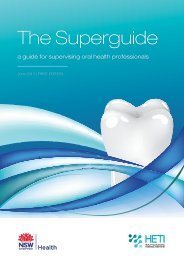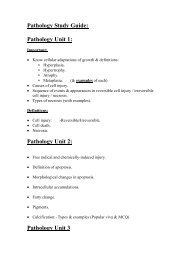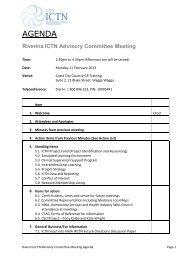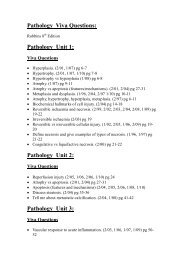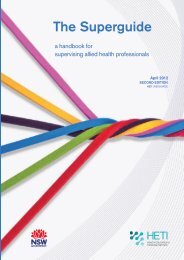Open - HETI
Open - HETI
Open - HETI
- No tags were found...
Create successful ePaper yourself
Turn your PDF publications into a flip-book with our unique Google optimized e-Paper software.
Background and context“Clinical Governance is the term used to describe a systematic approach to maintaining andimproving the quality of patient care within a health system. It is about the ability to produceeffective change so that high quality care is achieved. It requires clinicians and administratorsto take joint responsibility for making sure this occurs. When Clinical Governance is effective,it has the potential to:• make positive changes you want to see happen;• improve the quality of care for patients; and• provide a better experience for staff”.(New South Wales Ministry of Health, 2011)Education and training is a critical component of the overall system of clinical and corporategovernance of health care organisations (Braithwaite & Travaglia, 2008). It is a transition point whichbridges the gap between the generation and application of knowledge. As identified in the CorporateGovernance and Accountability Compendium for NSW Health, a core principle of good governanceis to ensure the NSW Health workforce have the capacity and capability to provide effective and safehealth services (NSW Department of Health, 2005).The term governance in the context of this document refers to a systematic approach to maintainingand improving the quality of education and training for allied health professionals across NSW Health.Best Practice Governance Framework for Allied Health Education and TrainingHealth systems and population needs are in a continual state of change. To keep up with thesechanges, allied health professionals must engage in lifelong learning and draw from practice-basedexperience and current evidence to remain competent to practise. By ensuring that allied healthprofessionals are supported to engage in lifelong learning and continuing professional development,health care organisations can be confident that they are employing a workforce capable of deliveringperson-centred care and therefore enhancing care outcomes.A number of consultations were held in 2011 by the <strong>HETI</strong> Allied Health Portfolio with allied healthdirectors, educators and clinicians. During these consultations it became evident that a set of bestpractice guidelines would be of benefit to provide guidance to allied health professionals, educators,managers and executives on building local systems of governance to support allied health educationand training within Local Health Districts (LHDs) and Specialty Networks.This framework has been developed by the <strong>HETI</strong> Allied Health Portfolio in collaboration with theNSW Allied Health Directors Committee and <strong>HETI</strong> Allied Health Advisory Committee. It is hoped byapplying the principles and guidelines outlined within this framework that health services will supportthe development of allied health capabilities in the delivery of person-centred care and promote aculture of lifelong learning and development of its staff. This will ensure that health professionals havethe necessary up-to-date skills and knowledge to provide high quality and safe care to the people ofNSW.2<strong>HETI</strong>


